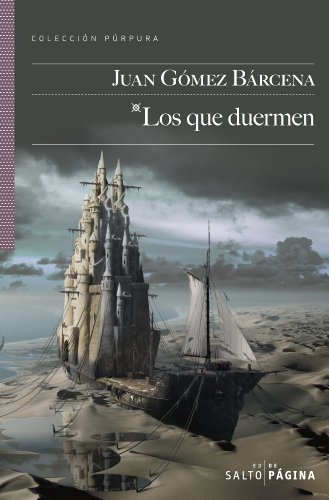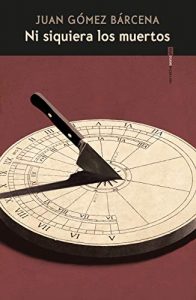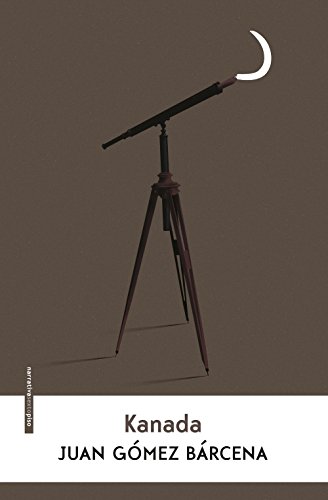If you had to bet on a young writer, more longsellers or wardrobe bottoms than bestsellers of the thriving genre of the moment (nothing to detract in these cases beyond opportunism), my files all went to the locker of Juan Gomez Barcena.
Because in the already considerable bibliography of this thirty-year-old we find those literary pearls cultivated in processes more typical of veteran, consolidated authors, who can write, if they wish, at the pace they want and about what they want. Thus highlighting that quality as an exclusive commitment to what is done without deadlines or editorial demands.
He plays against the coincidence with the other Juan Gomez, second last name Jurado. But the quality of both aside, each one goes his own way, targeting very different input readership audiences. Although it is already known that in literature everything can come together without greater support than the reader's taste.
If you want to meet one of those new different authors at the helm of stories against the current of the commercial, although with greater magnetism even in its action, have no doubts… Juan Gómez Bárcena.
Top 3 recommended novels by Juan Gómez Bárcena
Those who sleep
Certainly there is something of a magical process in every novelist who starts out by telling short stories, stories, tales. Because deep down every narrator is hardened from the brief composition of a dream; the entry in a diary; the white-on-black flash of desire.
Abounding in brevity when one continues writing is part of a sincere commitment to literature as a vehicle, as a transmission belt of sensations, emotions, ideas, fantastic projections, tremulous arguments of the budding writer or of the soul that seeks early compensation in the future. strange immortality of what is written. Those Who Sleep, a foundational book that we now recover from the already essential work of Gómez Bárcena, reveals him as an author of a precise and astonishing narrative genius.
A secluded swamp in Germania, where the bodies of hundreds of prisoners sacrificed to the gods surface centuries later, bringing the enigma of their existence back to the present. A mock concentration camp built by Hitler to circumvent inspections by the International Red Cross. An abandoned robot community that still yearns for the return of its creators.
Fifteen stories that form a surprising constellation, on the shores of time: subverted prophecies and destinies, fictions so fabled that they equal the truth in value, paradoxes of history. An extraordinary collection of stories that transport us to exact and distant worlds and that nevertheless connect with each other, oscillating between the present, the past and the future.
Not even the dead
In a world in transformation, or rather in a new world exposed to the eyes of those who discover it but immersed in the depths that can never be seen, livelihoods can be found capable of transforming those who have arrived with the pretense of a conqueror.
The soul is an enchanted place to be conquered by new ways of understanding a world that seemed worn, decadent. And from there the will ends up tracing inscrutable paths at the beginning of any journey. The conquest of Mexico is over, and Juan de Toñanes is one of many inglorious soldiers who roam like beggars through the land they contributed to subdue.
When he receives one last mission, to hunt down a renegade Indian who is nicknamed the Father and who preaches a dangerous heresy, he understands that it may be his last opportunity to carve out the future he always dreamed of. But as he ventures into the unexplored lands of the north, following the Father's trail, he will discover the traces of a man who seems not only a man, but a prophet destined to transform his time and even the times to come. This novel is the story of two homeless men, who move forward because they can no longer go back, and it is also a demand for justice for the losers of History.
Canada
The human being grows in the face of difficulties. At least the survivor of any disaster. The problem comes after any catastrophe, often caused by the human being himself.
Because in full action you don't think, you act. The emptiness comes later. And in the eyes of most of the survivors, not just those of the soldiers, you can see that famous thousand-yard look. A gaze that pierces you, because whatever focuses our gaze from the depths, cannot but reflect the blackness of the known abysses. Kanada begins where most World War II novels end: with the end of the conflict. Because in 1945 the massacres stopped, but another tragedy began: the impossible return home of millions of survivors.
The protagonist of Kanada has lost everything. He only has his old residence left, a makeshift refuge in which he will end up shutting himself up to protect himself from an indefinite threat. Surrounded by neighbors who as soon as his rescuers as his jailers, he will undertake an inland journey that will take him far, to the dark country of Kanada where he claims to come from. What to do when circumstances push us to perform acts of which we never thought we were capable? How to regain our identity when everything has been taken from us?



